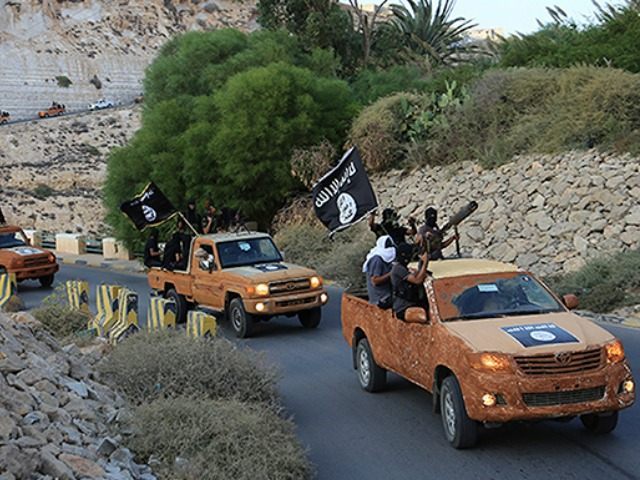An unnamed Arab League source tells Gannett’s Defense News that the heads of state of seven Arab countries will meet with Libyan officials on May 18 to discuss possible military intervention in that nation, as the Islamic State continues to expand its influence over large swaths of the country.
While the Defense News report claims the meeting is scheduled only to present a discussion about potential intervention, the McClatchy report states leaders at the meeting “will agree to send troops to Libya.”
Such a military action would be the first test of an Arab military coalition agreed upon loosely in March by members of the Arab League. In that meeting, the group agreed to create a joint force to combat Islamist extremism but, more specifically, to strengthen their collective power against potential attacks from Iran, whose growing influence has many Sunni leaders concerned. The backdrop for that Arab League meeting was the civil war in Yemen, announced by Egyptian President Abdel Fattah al-Sisi as an agreement on the “principle” of a joint force, working to “pump… the blood of hope in the arteries of Arab cooperation.”
It was reported in April that Egypt was planning a unilateral effort to combat Islamists in Libya. While that “large-scale ground and air” assault in Libya has yet to occur, this meeting is a sign that Egypt is strengthening its resolve in working to stabilize the region.
The Islamic State poses a serious threat to Egypt across the border in Syria. It has most prominently challenged the Egyptian government by releasing a video in April showing the mass beheading of 21 Coptic Christians on a beach in Libya, believed to have been kidnapped from Egypt.
A move by Arab coalition states to intervene in Libya would prevent a similar effort by European powers, which are currently contemplating military action to help slow down the influx of migrants attempting to flee the troubled nation across the Mediterranean Sea. Multiple reports indicate that European Union nations are seeking UN approval of military force in order to combat smugglers and potentially destroy vessels used in human trafficking. The death of over 700 migrants as a result of the capsizing of one vessel in April prompted a continent-wide meeting in which nations agreed to triple funding for programs to rescue migrants once they are on high seas.
Concerns that such illicit trafficking would also create avenues for Islamic State terrorists to travel to Europe imperceptibly have also alarmed European officials. In February, a report claimed Italy was preparing a force to combat the Islamic State in Libya, as ISIS supporters on Twitter escalated calls for attacks on Rome.

COMMENTS
Please let us know if you're having issues with commenting.